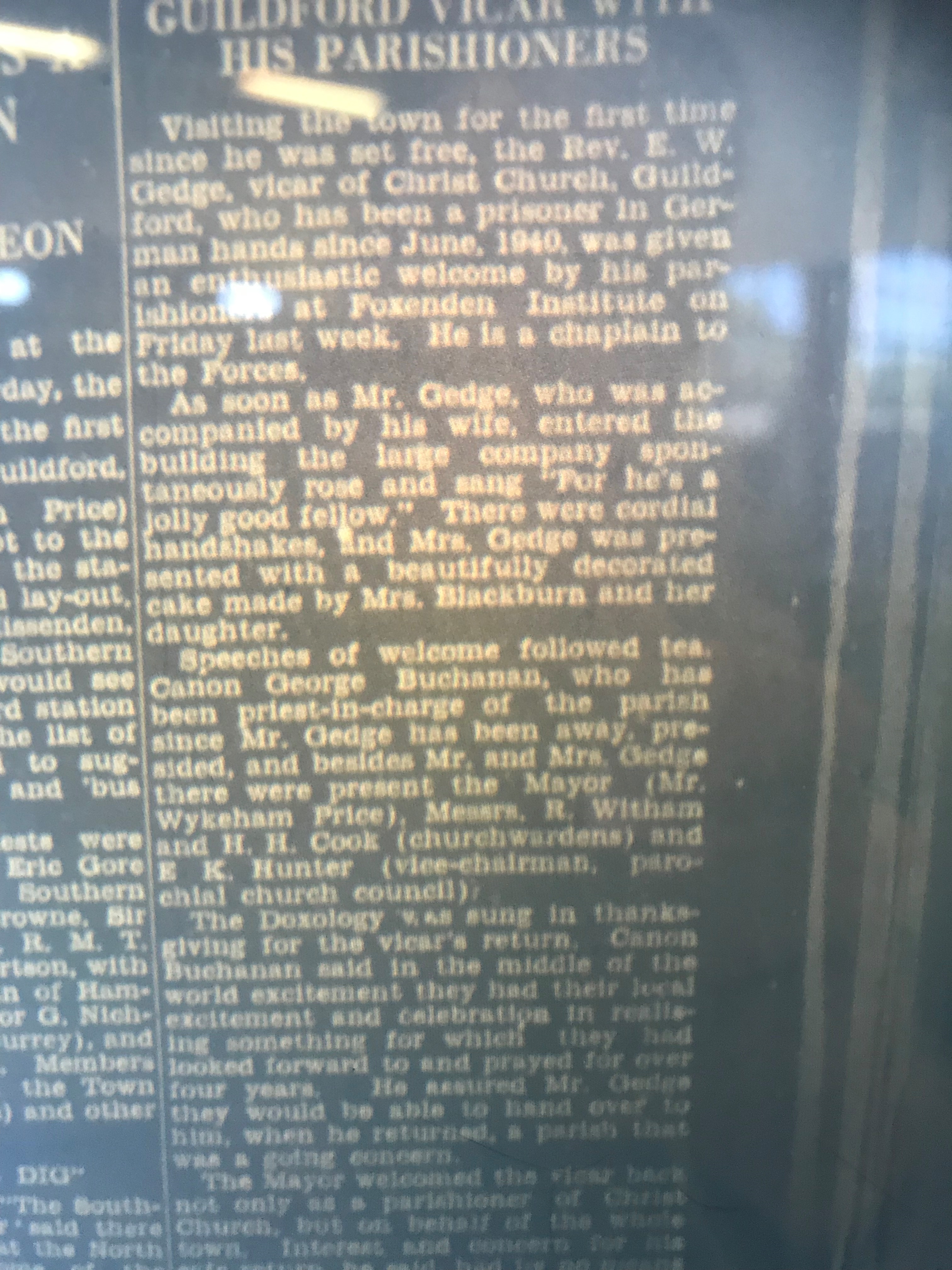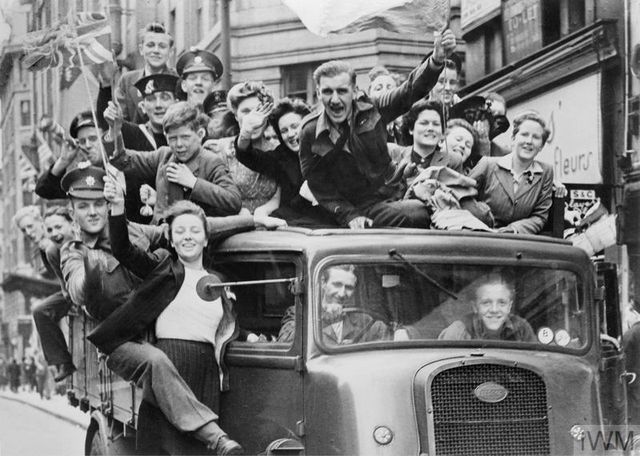
(Credit: London News Agency photographer)
80 years ago, people up and down the country gathered around their crackling radios to hear the triumphant voice of Prime Minister Winston Churchill, as he announced the end of the war, marked with a national holiday. After six years of conflict the death toll had been immense with almost half a million British lives lost and between 70-85 million woldwide.
News that the war had finally ended was met with jubilation, with millions taking to the streets to celebrate. What was also clear looking through archive material held in the Surrey History Centre, was the important role the church played throughout this period. Bells rang out, church pews were packed for thanksgiving services, and many turned to the church to help mark this momentous occasion.
The war effort
Churches made a significant contribution to the war effort in both the spiritual and practical sense. Clergy of course offered spiritual guidance and comfort to congregants dealing with loss and uncertainty. They held national days of prayer to pray for victory and peace. Indeed, many clergy served as chaplains in the armed forces. On the practical side, churches were often used as makeshift shelters during bombing raids. For example, according to PCC minutes from 1944, Holy Trinity, Guildford which was the Pro-Cathedral at the time, used the cellar of its parish halls as an air raid shelter, keeping people protected during the Blitz. Today it’s used as a storage space (see pictures below) and houses the church boiler, but looking at the space, it’s easy to envisage dozens of local people tightly huddled together as the sirens alarmed.
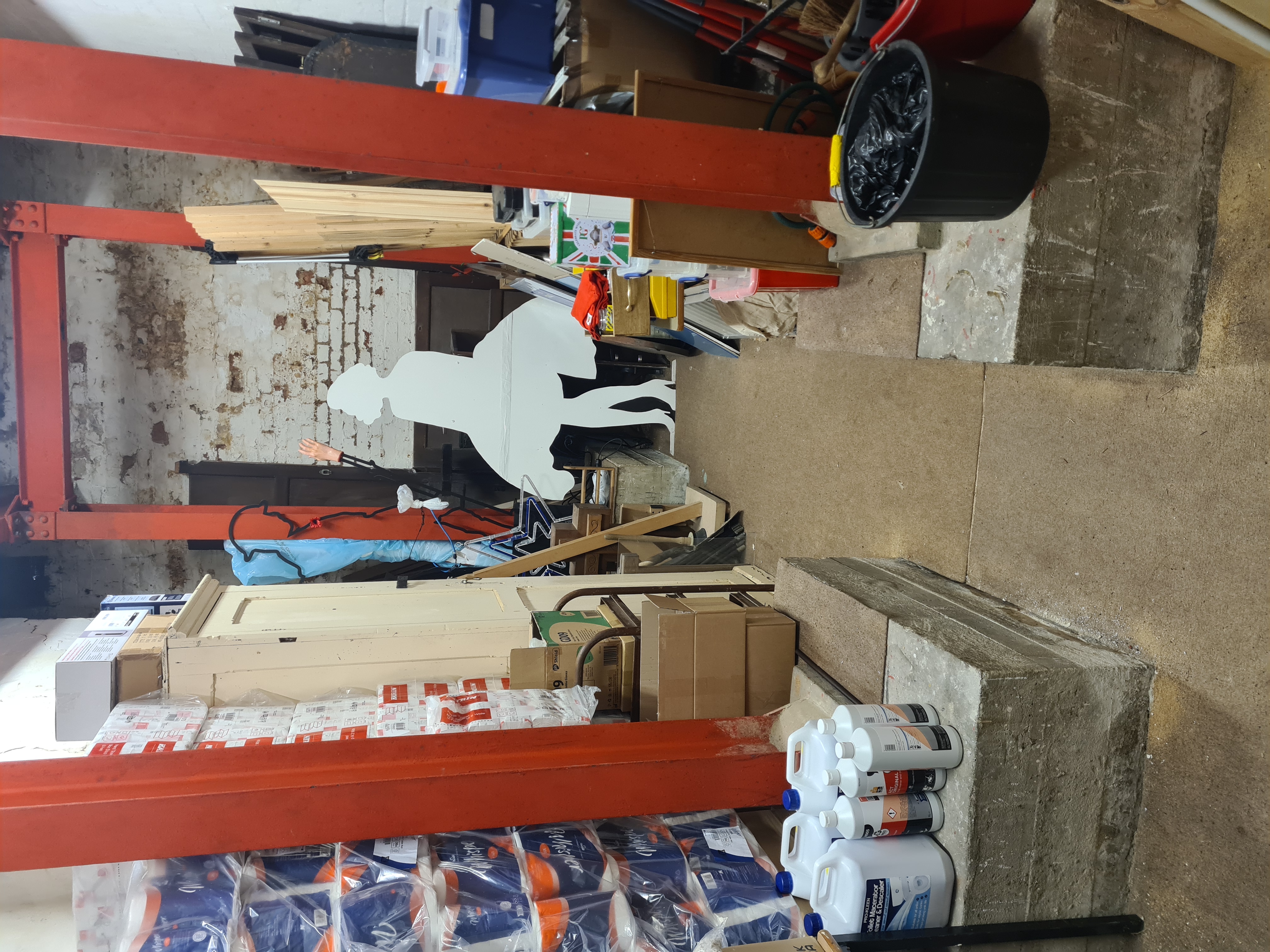
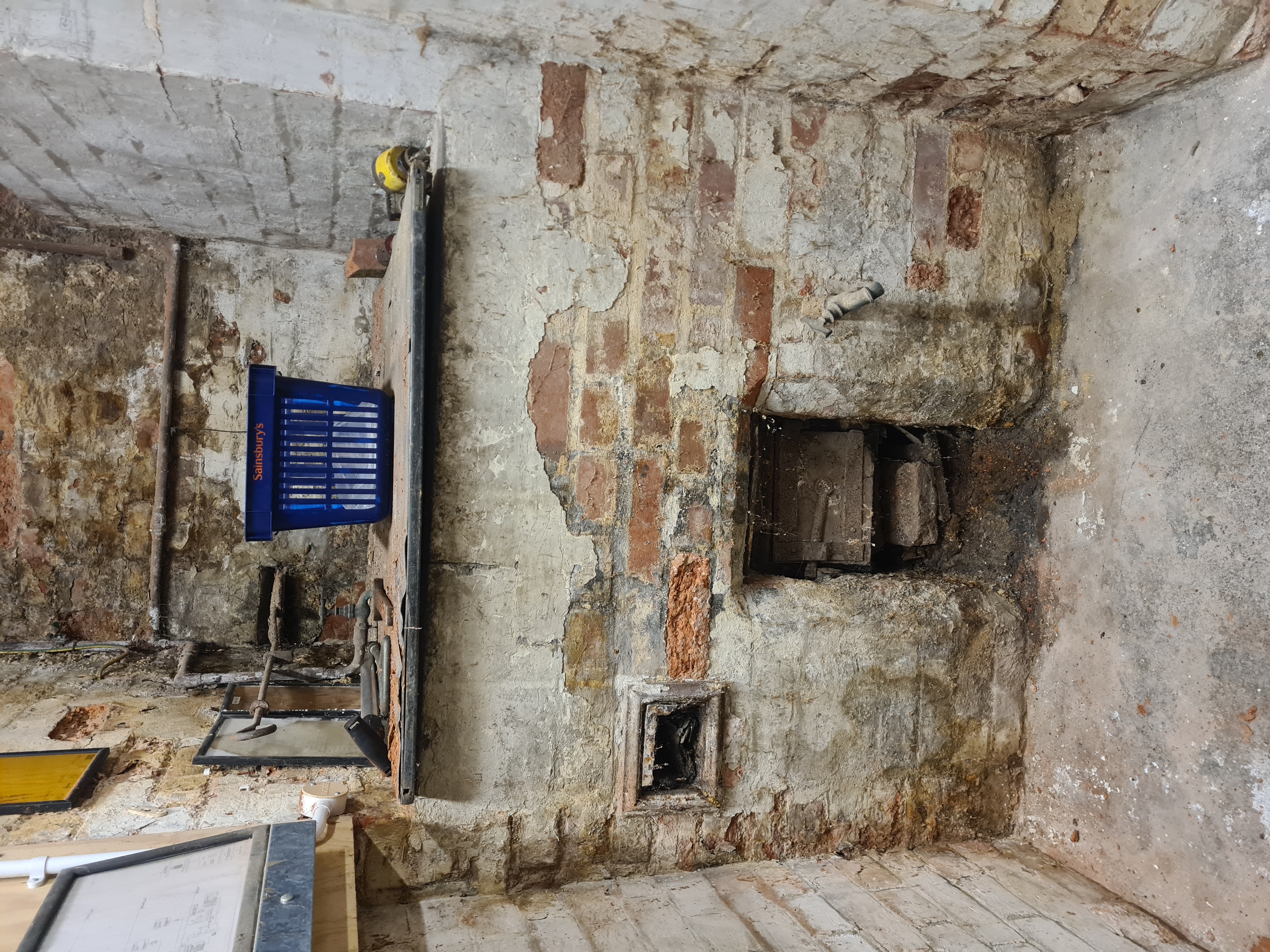
Credit- Margaret Clements (Holy Trinity, Guildford)
Clergy were not just supporting in their parishes however, many served on the front line. The Surrey Advertiser and Country Times reported on 12 May 1945 that Revd. E.W. Gedge, vicar of Christ Church, Guildford was ‘given an enthusiastic welcome by parishioners’, as he returned from Germany where he was held as a prisoner of war since 1940. The Mayor of Guildford also attended the homecoming, and the ‘Doxology was sung in thanksgiving’.
Thanksgiving services
In anticipation of the war ending, a letter from the Mayor of Guildford dated 2 May 1945 details the King’s expressed wishes that the ‘Sunday following VE Day should be observed as a day of thanksgiving and prayer with special services held throughout the country.' In the letter below, Mayor Wykeham Price accepts the pre-emptive invitation from the ‘Cathedral Church of Holy Trinity’ on that Sunday.
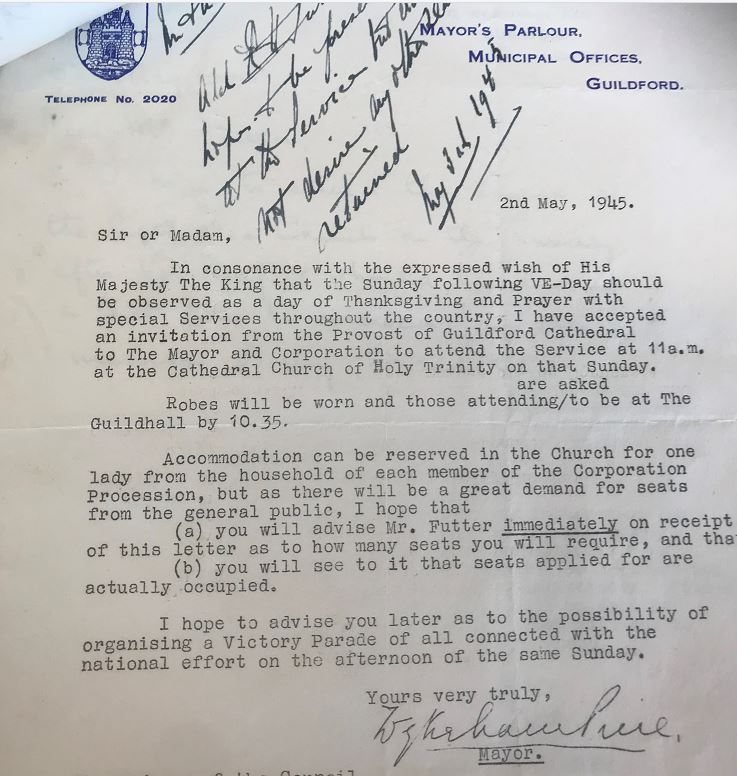
Across the diocese, churches held numerous thanksgiving services- some held in hourly intervals such was the demand. The Surrey Advertiser dated 12 May 1945 included the headline ‘Leatherhead goes Gay’, which noted that ‘after the announcement, the church bells crashed out victory peals, and open-air services were held. At Leatherhead, clergy and ministers, with the combined choirs of Leatherhead Parish Church and All Saints’ Church, walked in a procession to the terrace of Elm gardens where a large crowd waited to take part in the service’.
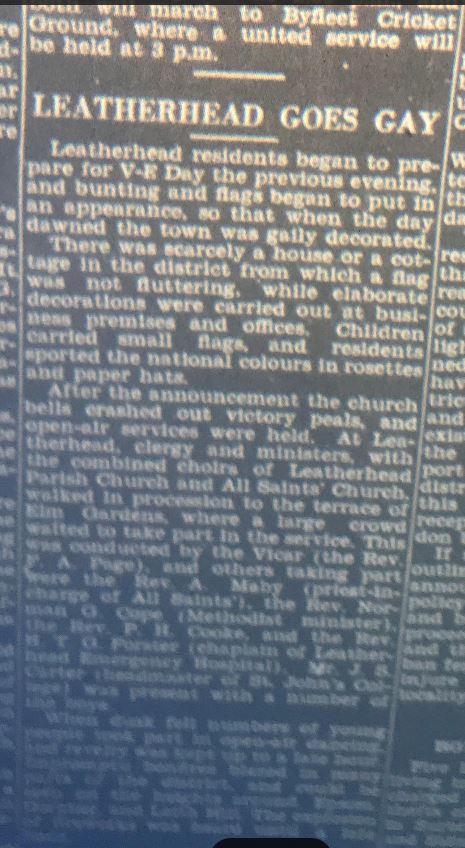
The same edition of the newspaper referred to Godalming High Street being ‘ablaze with coloured streamers and Union Jacks’, and Godalming Parish church being ‘almost filled’ for the afternoon service of thanksgiving, which was attended by Mayor and Deputy Mayor. Milford Church’s thanksgiving service was similarly filled as was a thanksgiving service held on the cricket green.
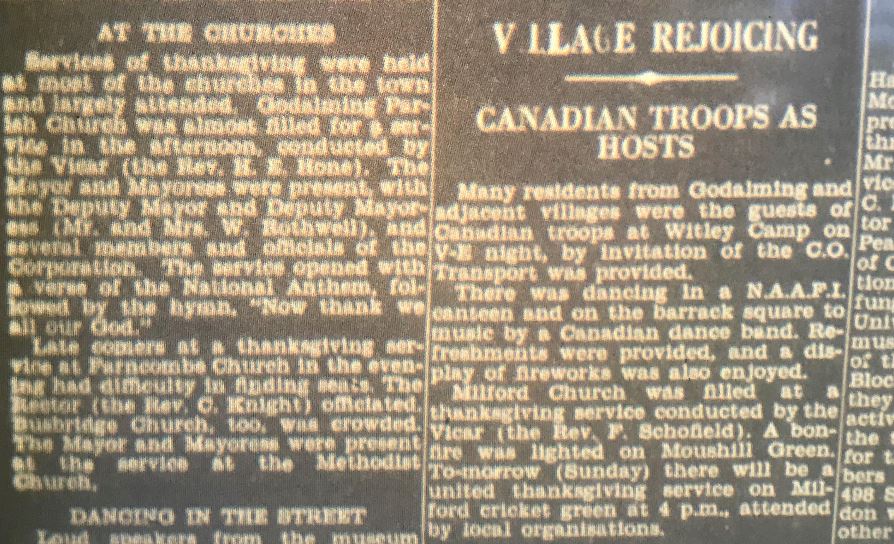
A cutting from the Esher News and Advertiser references the thanksgiving service held at Esher Parish Church and West End Church, including a parade service with ‘several official bodies in uniform’. The churches also held a collection to ‘fund the reconstruction of churches and church life in the formerly enemy-occupied countries of Europe.’

Another newspaper article reports that in ‘Woking a victory parade was held for Sunday’s service of thanksgiving.’ The parade featured various army and cadet regiments along with their bands to add to the celebratory tone. The vicar of Christ Church Woking, Rev. J. Clifford Banham led the service and was joined on the platform by the Bishop of Guildford.

The Bishop of Guildford’s address in 1945
The Rt Revd John Macmillan, Bishop of Guildford during WWII wrote a letter in the Surrey Advertsier to the diocese in anticipation of VE Day. In it he reminds people that the war in the Far East is yet to be finished. He also appeals for people to, “think once more of the chasm of suffering and moral degradation which has yawned before us during these years…. It is the knowledge and love of our God made a constant part of lives, which alone can make good the day of victory when it comes.”
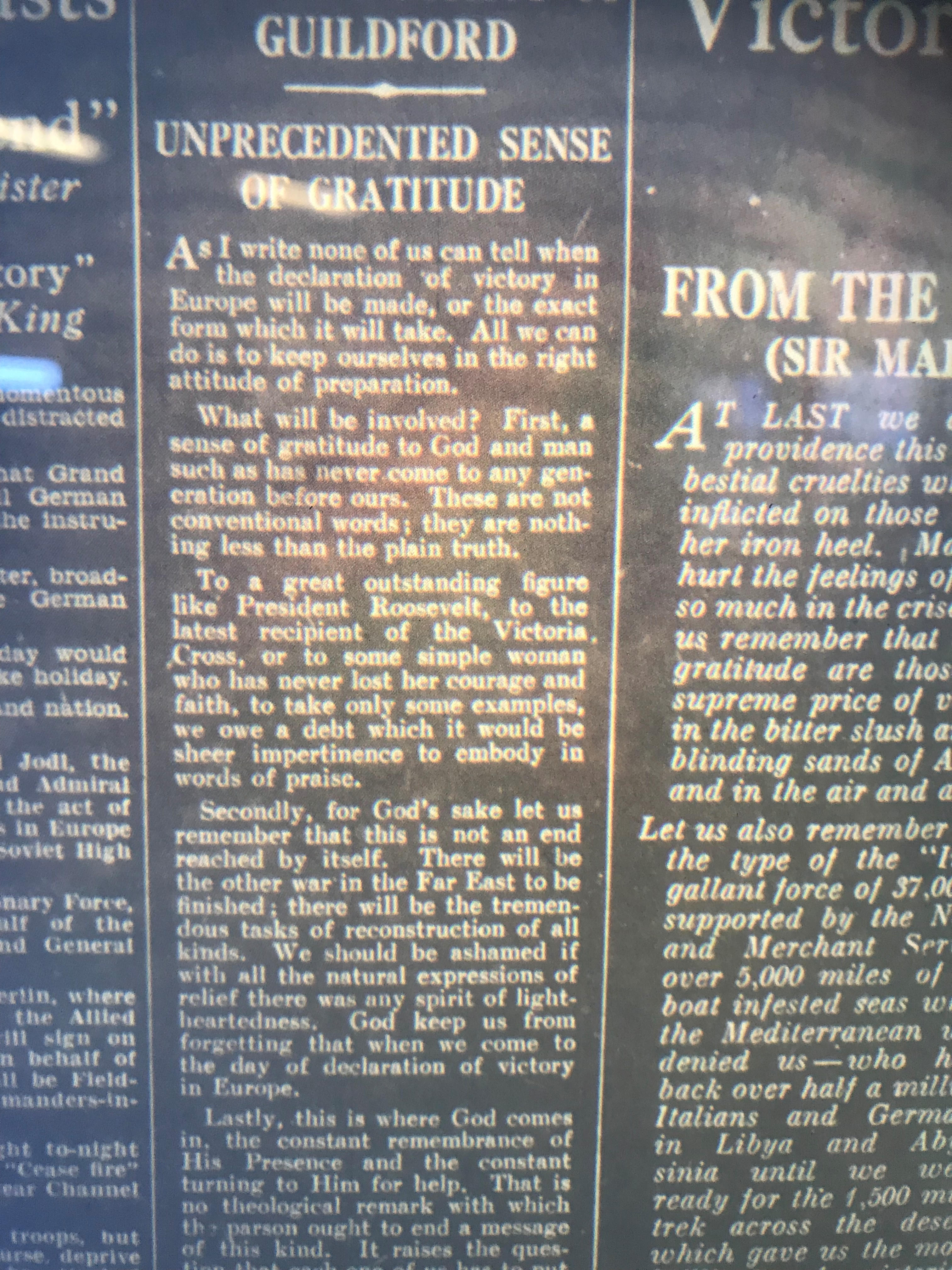
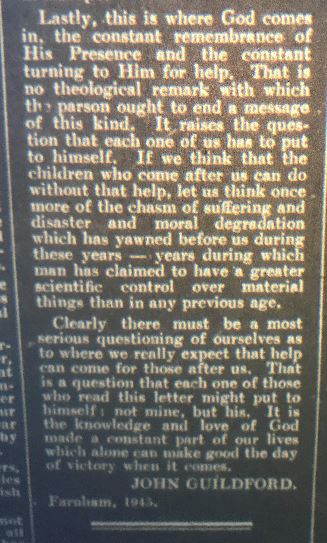
The Rt Revd Andrew Watson, Bishop of Guildford said:
“I was especially moved to read the letter to the Surrey Advertiser, written by the then Bishop of Guildford, John MacMillan, in May 1945. His threefold response to the forthcoming VE Day could be summarised as gratitude, seriousness and faith: gratitude for all who had given of their best during the conflict (from politicians and war heroes through to ‘some simple woman who has never lost her courage’); seriousness about the horrors of war and the challenges that lay ahead; and faith in the knowledge and love of God, which needed to be communicated to the next generation like never before.
“Eight decades, and eight Bishops of Guildford, later, I have taken these same three themes for my sermon at the County Service at Guildford Cathedral on Sunday, May 11th: remembering with gratitude people I knew (my grandparents among them) who acted with extraordinary courage over those years; recognising the seriousness of this anniversary, not least at a time when an escalation of war in Europe has seldom looked more likely; and emphasising the role of faith in inspiring hope and a vision that goes beyond our own little world and even our own little lifetime.
“As we seek, in St. Paul’s words, to ‘make the most of every opportunity’, it’s my hope and prayer that this anniversary would help to draw many people to the themes so deftly spelt out by my episcopal predecessor.”
